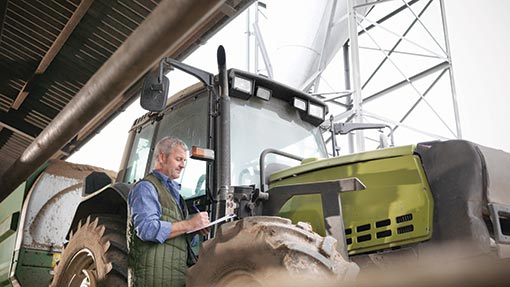Revisit cashflow plans to identify pinch points

Farmers need to revisit cashflow plans to assess how they will ride out what could be a very stormy six months, say advisers.
Tax bills are due at the end of January and payments on account for 2014-15 could be reduced if accounts are accurate and timely enough to predict a lower profit for the current year.
Technical and management skills still needed to improve on many farms and in particular people skills were lacking, said Richard Barnett of Cheshire accountant Howard Worth.
He advises mainly dairy farmers and said that there was still huge scope for more collaboration on labour and machinery to reduce costs and get the right structures in place.
With falling farmgate prices across most sectors and a reluctance to sell in the arable markets, cashflow pressure is already a challenge for many. The use of trade credit with feed and other input merchants is growing.
Higher cereal yields will not make up for the drop in prices, except for those who sold early or who have good milling wheats, said Strutt & Parker partner Richard Means.
He suggested that hanging on in the hope of a price increase was not a gamble that growers should be contemplating, apart from perhaps with a small proportion of their crop.
Wiltshire-based land agent David Cross of Savills is seeing more smaller parcels of 20-50 acres of land coming to the market to reduce overdrafts.
These were across all land types but mainly grassland, he said, with high values of £10,000-15,000/acre achieveable especially for small acreages close to villages.
“Some farmers will tough it out, as they have traditionally done, but a combination of financial pressures could be enough to force others out of the industry,” said Mr Richard Barnett, who also represents the UK200Group’s agriculture special interest accounting group.
A greater understanding was needed at farm level of the interaction between cashflow and profit and loss, he said.
At a machinery sale held in Northamptonshire on 11 September, Fisher German auctioneer Sam Skinner said that it was noticeable that dealers had more cash for good kit than farmers did.
“Demand for good second hand machinery still remains, however on nearly all occasions it is the dealers who have the appetite for the larger and more expensive lots, suggesting that despite reasonable yields for most, the dark cloud of poor commodity prices is having a big impact on farmers’ spending,” said Mr Skinner.
The sale at Allwood Farm, Woodend, near Towcester, included a high proportion of newer equipment and saw a 2009 Vaderstad Carrier 500 cultivator make £24,000, a 2013 Vaderstad Rapid A 600S drill at £50,000 and a 2011 New Holland T8.390 tractor with 1,000 hours sell for £70,500.
